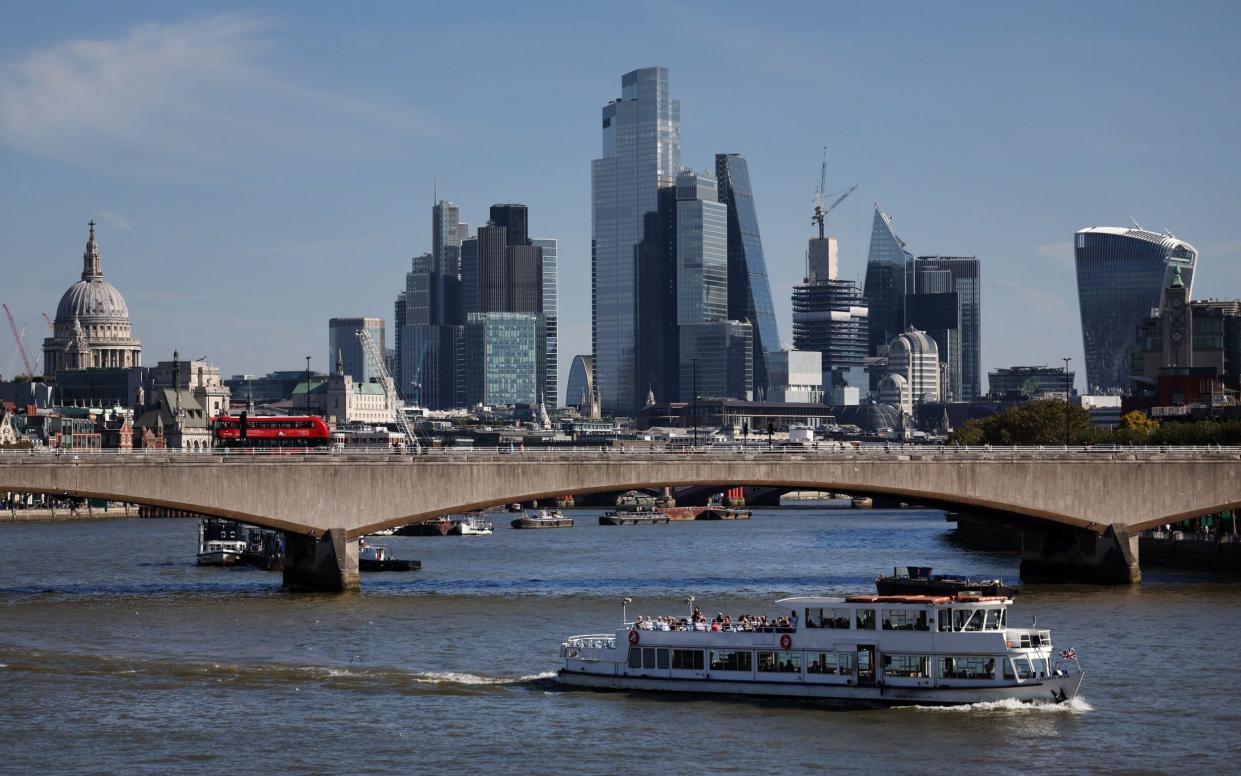Brexit hasn’t crushed the City – it’s thriving

In a pivotal election year, the term “economic growth” will be at the forefront of every political party’s messaging and campaigning.
Following Brexit, many predicted the UK’s financial services sector would lose much of its power as the “engine room” of the UK economy.
“Hundreds of thousands of jobs” would leave London, foreign direct investment would dry up, and the economy would be bruised beyond repair.
Four years after leaving the EU, we have yet to see this momentous decline in the financial and professional services sector, or the predicted plundering of the City by our EU competitors.
In fact, according to new annual benchmarking research from the City of London Corporation, London is the leading global financial centre.
Before anyone accuses us of marking our own homework, the research uses 101 external metrics from key business areas including financial activity, the regulatory ecosystem, talent and skills and business infrastructure.
The findings confirm that London has surpassed New York City after being joint first with our American frenemy in the 2023 report.
But how can London be the leading global centre while high value firms are choosing to list in New York instead of the UK?
There is no denying that the US dominates global equity markets in both market capitalisation and trading volume.
There has been a lack of new listings in London, but this is true for nearly all markets outside of America as companies around the world look to our friends across the pond for investment. And there is more to capital markets than equities.
London is a global leader in bond markets, both issuance and trading, foreign exchange, and cross-border banking.
We also cannot overlook the resilience and strength of our business ecosystem here in the Square Mile and across the UK.
Outside of financial activity, London has remained consistent across other metrics.
First, while New York’s dominance as a tech leader is beginning to wane, London’s is growing and the UK is now the third largest tech ecosystem in the world.
Second, our leadership in green finance is sought after across the globe.
The City Corporation is providing the joint secretariat in the transition finance markets review, which will explore how UK and international companies can ensure their investments meet net zero requirements.
Third, perhaps most critically, the UK’s regulatory regime is admired around the world.
Post-Brexit reforms such as the Financial Services and Markets Act and the Edinburgh reforms appeal to international businesses seeking to invest in the UK.
Foreign direct investment (FDI) in financial and professional services increased 68pc from 2021 to 2022, to more than £2bn as asset managers, fintechs and investment banks opened offices in London.
In the wake of Brexit, regulators, the Government and the private sector have worked on re-evaluating our policies and bringing in business-friendly reforms – which was often overlooked in the past.
Although Brexit hasn’t been our downfall, we should acknowledge Britain’s shortcomings. Our findings point to a strong decline in capital markets activity in the UK and skills shortages.
Since the financial crash, capital markets have been driven by a risk-averse culture. Politicians must ensure that regulation is appropriately balanced with innovation.
Last year’s Mansion House reforms should be welcomed: more than 10 of the leading defined contribution pension firms have since agreed to allocate 5pc of their funds to unlisted assets in a bid to back high-growth British businesses.
Further, it must be simpler for companies to list on the London Stock Exchange so they do not choose New York or Singapore over the UK.
The Financial Conduct Authority recently announced reforms to its listing legislation with the aim of boosting Britain as a destination for IPOs, and optimising the capital raising process for companies seeking to list on the main UK markets.
Lastly, the UK’s business infrastructure must be more efficient. The UK has the highest visa costs among global financial centres, our report found, presenting a significant barrier for highly-skilled workers.
Yes, there is a pool of talent already in the City. But overseas experts in AI, life sciences and tech currently have limited access to our market.
A three-year skilled visa for someone entering the UK is around £7,500 while the same visa in France or Germany costs £283 and £155 respectively.
As a contributor of 10pc of Treasury tax receipts and a provider of more than 2.4 million jobs, there must be an urgent response to even the smallest signs of decline in the UK financial and professional services sector.
This research serves as a sort of MOT, but we need a long-term roadmap for the industry to widen the gap with our competitors and boost prosperity across the nation.
A key proposal is the creation of a financial and professional services sector council which would oversee a strategy to drive the sector’s success, as deployed in markets such as Singapore and Ireland.
While London may hold the top position in this year’s report, if we ignore our signs of decline it will be to our detriment.
Economic growth must be more than a talking point – solid policy and reforms must be presented by both leading parties to once again revive the economy’s engine room.
Chris Hayward is policy chairman at the City of London Corporation

